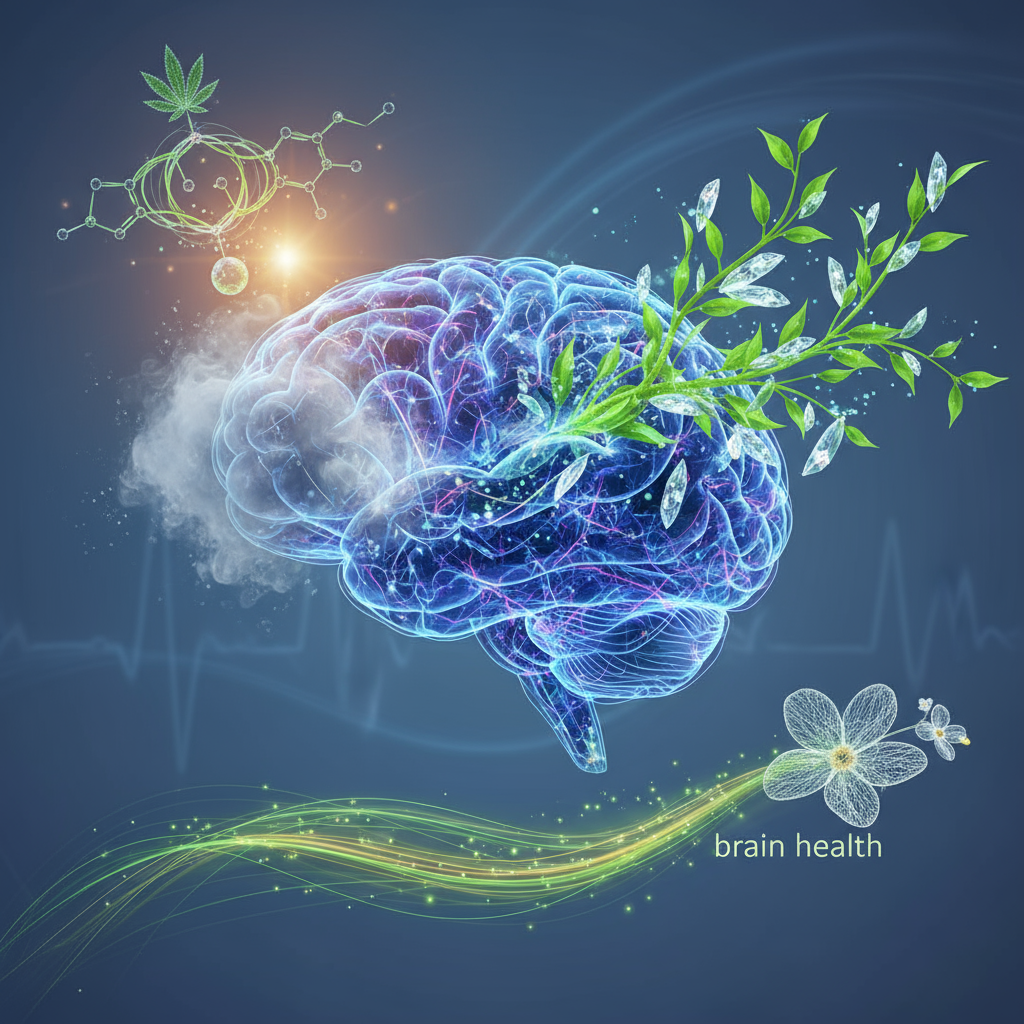Could CBD Be a Game-Changer for Alzheimer’s? New Research Offers Hope
Alzheimer’s disease, a devastating neurodegenerative condition, continues to pose one of humanity’s greatest medical challenges. Affecting millions worldwide, it slowly erodes memory, cognitive function, and independence, leaving individuals and their families grappling with its profound impacts. Despite decades of research, truly effective treatments remain elusive, inspiring a relentless search for new therapeutic avenues.
In this ongoing quest, an intriguing compound from the cannabis plant, cannabidiol (CBD), is emerging as a potential beacon of hope. New research suggests that CBD may hold the key to addressing a critical component of Alzheimer’s progression: brain inflammation. Not only that, but early findings hint at its ability to actually improve cognitive function. Could this non-psychoactive cannabis derivative offer a path toward easing the burden of Alzheimer’s? Let’s delve into the fascinating science behind these claims.
Understanding Alzheimer’s: More Than Just Memory Loss

Before we explore CBD’s potential, it’s essential to understand the complex pathology of Alzheimer’s disease. While often characterized by memory loss, the disease involves a cascade of events within the brain. Two primary culprits are amyloid-beta plaques and tau tangles, abnormal protein buildups that disrupt neuronal communication and eventually lead to cell death.
However, recent research has significantly expanded our understanding, highlighting the crucial role of neuroinflammation. This “inflamed brain” state is not merely a symptom but an active participant in the disease’s progression. Microglia, the brain’s immune cells, become overactivated, releasing inflammatory molecules that contribute to neuronal damage and accelerate cognitive decline. Targeting this inflammation is now considered a vital strategy in the fight against Alzheimer’s.
Traditional approaches have largely focused on clearing amyloid plaques, often with limited success in reversing cognitive decline. This has led scientists to look for alternative mechanisms, and the intricate connection between inflammation and neurodegeneration presents a promising new front. If we can quell the inflammatory storm in the brain, might we be able to slow down or even halt the disease’s progression?
CBD to the Rescue: Calming Brain Inflammation

This is where cannabidiol enters the picture. Unlike its well-known cousin THC, CBD is non-intoxicating, meaning it doesn’t produce the “high” associated with cannabis. Instead, it interacts with the body’s endocannabinoid system (ECS), a complex network involved in regulating various physiological processes, including mood, pain, and immune response.
The exciting news stemming from recent studies, such as the one highlighted by PsyPost, is that CBD appears to possess strong anti-inflammatory properties, particularly within the brain. Researchers have observed that CBD can modulate microglial activity, preventing them from becoming hyperactive and unleashing damaging inflammatory cytokines. By essentially “calming” these immune cells, CBD could help reduce the chronic inflammation that fuels Alzheimer’s progression.
Think of it like this: in an Alzheimer’s brain, microglia are like overzealous firefighters who, instead of putting out small fires, start damaging the entire building with their powerful hoses. CBD, in this analogy, might act as a regulator, ensuring the firefighters do their job efficiently without causing collateral damage. This targeted anti-inflammatory action could be pivotal in protecting neurons from further harm and preserving brain function.
Beyond Inflammation: A Boost for Cognition?
The potential benefits of CBD don’t stop at reducing inflammation. Researchers are also investigating its ability to directly improve cognitive function, a critical outcome for Alzheimer’s patients. While the exact mechanisms are still being unraveled, several pathways are being explored.
One theory is that by reducing neuroinflammation, CBD creates a more favorable environment for neuronal health and communication, indirectly boosting cognitive abilities. Furthermore, CBD has been shown to have neuroprotective effects, meaning it can help shield brain cells from damage caused by oxidative stress and other harmful factors. Some studies suggest it may also promote neurogenesis, the growth of new brain cells, particularly in areas important for memory, such as the hippocampus.
Early animal studies have shown promising results, with CBD administration leading to improvements in memory and learning tasks. While human trials are still in their early stages and more extensive research is needed, these initial findings are incredibly encouraging. They paint a picture of a compound that might not only slow down the disease but actively contribute to the restoration of crucial brain functions.
The Road Ahead: Hope and Caution
The burgeoning research into CBD’s role in Alzheimer’s disease offers a glimmer of hope for millions. The idea that a relatively safe, non-psychoactive compound could address both inflammation and cognitive decline is truly exciting. However, it’s crucial to approach these findings with both optimism and a healthy dose of scientific caution.
While preclinical and early-stage human studies are promising, much more rigorous research, including large-scale controlled clinical trials, is needed to confirm efficacy, determine optimal dosages, identify potential side effects, and understand long-term impacts. Alzheimer’s is a complex disease, and finding a singular “cure” is unlikely. Instead, multidisciplinary approaches and combination therapies are probably the future.
Nevertheless, CBD’s potential as a therapeutic agent for Alzheimer’s disease is undeniable. As research continues to unfold, we may be on the cusp of a significant breakthrough that could profoundly impact the lives of individuals and families affected by this devastating condition. The journey is long and challenging, but the emerging science around CBD provides a tangible reason for optimism in the fight against Alzheimer’s.

